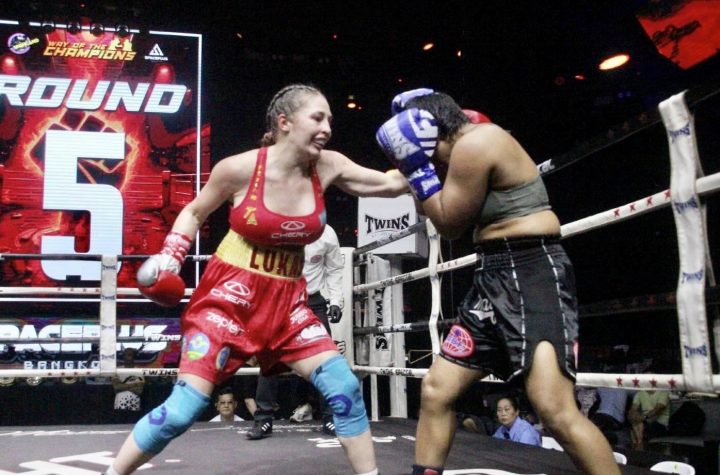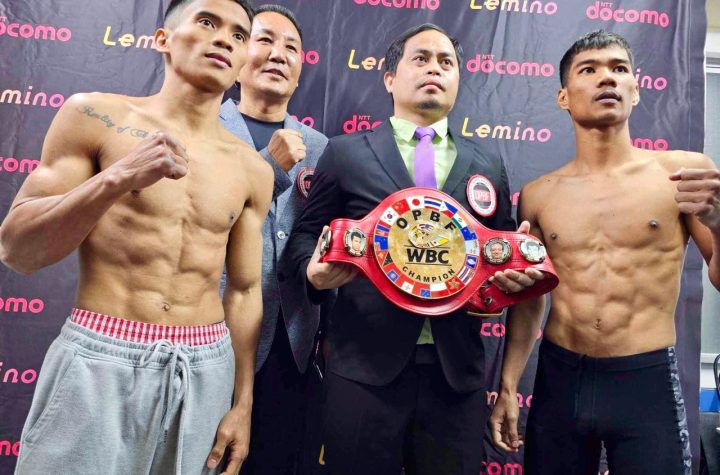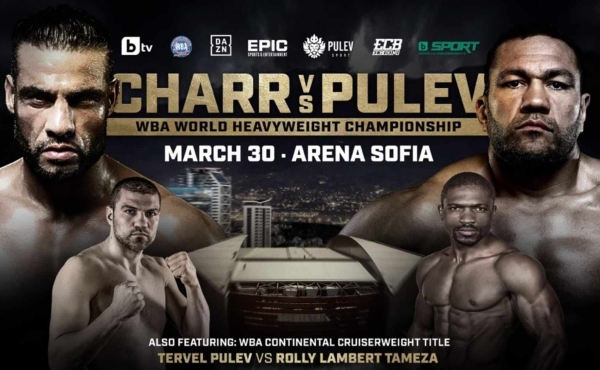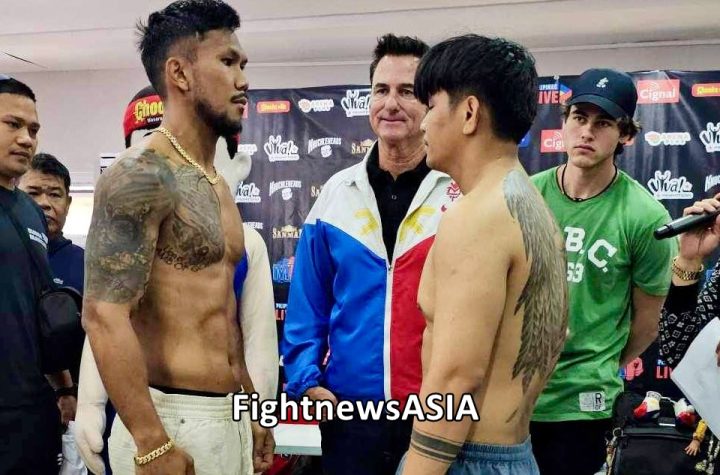Andy Clarke explains why professional boxing and amateur boxing are two different worlds

AIBA
THERE was a neat juxtaposition about last week. It started with a trip to the World amateur championships in Hamburg and finished with a show at York Hall featuring fighters who boxed at the same tournament in Doha two years ago. The same sport but two different worlds.
It’s extremely difficult to win medals at the world amateurs. It doesn’t attract anything like the same attention as the Olympics but as an indicator of a boxer’s ability, a world championship medal is of rarer currency than an Olympic one. In the last 10 years GB fighters have stood on the podium 10 times at the Worlds and 11 times at Olympics. It might not seem like much of a difference but there have been six editions of the former in that time, and just three of the latter, with the gold count being 5 to 1 in the Olympians’ favour.
The standard this year wasn’t quite what it was in Doha two years ago but it was still very high. Peter McGrail, Pat McCormack, Ben Whitaker and Cheavon Clarke all made it to the quarter-finals with McGrail progressing to the semis where he was eliminated by an extremely talented Kazak in Kairat Yeraliyev. But the man from Everton Red Triangle scooped a bronze to go along with the gold he won at the European Championships and has had a terrific year.
I was there commentating for AIBA, alongside Ronald McIntosh, and saw 100 bouts over 5 days in ring B before heading home after the quarter-finals. It was great fun, Ron’s very good company and the boxing was terrific. The line-ups for the semi-finals were dominated by the traditional powerhouses of Cuba, Uzbekistan and Kazakhstan with Cuba emerging yet again as top dog. But it’s the things you see and hear away from the ring that can prove just as interesting as the action inside it. I spent quite a bit of time chatting to the McCormacks and McGrails who had come out to support their sons. I find boxing parents behave differently to parents with sons or daughters in other sports. They’re gentler, or at least certainly not as pushy. They want to see their children win but they don’t seem to feel the need to dish out the kind of tough love parents in other sports do. I think the reason for that is that they know, as much as any observer ever can, how hard it can get in that ring, let alone in the gym, and that just being prepared to get in there at all ends all arguments about commitment and how much you want to be there. Boxing is unforgiving and lonely and necessary criticism can come from coaches, what fighters need from families and friends is encouragement and support and that’s what they got. They were generous too; Peter McGrail’s Dad was constantly offering to buy myself and Ron drinks and hotdogs.
It’s an AIBA tournament of course but professional boxing is never far away. If you want to see who the stars of tomorrow are going to be then the World Championships is where you come. I ran into a friend from Sauerland who was on a scouting mission and we had a long chat with Mirko Wolf, who I knew from his days at AIBA, and who now works with David Haye and Richard Schaefer. Willy Hutchison was with him, the young Scottish fighter who won a gold medal at last November’s world youth championships and who makes his pro debut in Liverpool on September 16th. Willy was finishing off camp in Germany due to the fact that Ismael Salas, the new Hayemaker-Ringstar house trainer was back in Vegas with Jorge Linares ahead of his fight with Luke Campbell on the 23rd. He’s Scottish born and bred but has a north east of England accent which he told us he had learnt from him parents who were also 100 per cent Scottish, who in turn had learnt it from their parents. They all, as he described it, “speak English” but are all Scottish. He’s looking forward to his debut on the Smith vs Skoglund undercard immensely and had some interesting thoughts on the World Boxing Super Series Super Middleweights. I put forward my theory that Eubank Jnr will give Groves a hell of a fight if they meet in the semi-finals, as they’re scheduled to assuming they both win in the quarters, and he politely but very firmly cut in down. Groves, who he’s sparred recently, will knock Eubank out, he said, “one million percent.”
I’ve seen a lot of AIBA boxing over the last three years and at every tournament there’s always someone new who catches the eye and this time it was Brazilian Lightweight Wanderson. He’s from the Complexo da Mare favela in Rio, a community literally divided and ruled by the lawlessness and violence of gang warfare. There’s a street that runs through it; one side belongs to one warring faction, the other to the enemy and crossing from your own side to the other is to risk death. Unless you’re a boxer from the Luta Pela Paz (Fight for Peace) academy. The gym has its own van, covered in stickers to announce its identity, and it and its cargo of young fighters can go wherever it so pleases without fear of reprisal. It’s a powerful symbol of how sport can heal, if only temporarily, the rawest of divisions. Everyone there is proud of Wanderson, he fights for them, and he really can fight too. He’ll be a champion one day, I’m sure of that, but to be honest, to get to where he has given where he comes from makes him one already.
I was sorry to leave Hamburg before the action was all finished but I had to get back to London for Sky’s York Hall bill on the Friday. I really enjoy the NXTGEN shows and, as I said at the top, the likes of Buatsi, Cordina and Okolie are all recent graduates of top AIBA competition so it was interesting to compare them now as novice professionals to the fighters I’d just seen in Germany.
They’re different now. The difference doesn’t lie in their skills, although they are being fine-tuned for the professional ring, so much as in their attitude. You are, people like to say, a product of your environment and their environment has changed significantly. They’re all just as friendly and approachable as they’ve always been but they’ve hardened; their skin’s tougher and thicker than it used to be and it has to be because one thing they’ve all realised is that the scrutiny is greater now. They’ve arrived in the pro game with big reputations and people are just as quick to criticise as they are to praise. And they’re on their own; it’s not Team GB anymore but Team Buatsi, Team Okolie and Team Cordina. They make their own decisions about their own careers and they have to try and make sure they get them right. They’re scaling a cliff face and the scaffold of support that used to surround them up in Sheffield has gone, one slip and you fall.
No slips were likely to occur on Friday, at this early stage of their careers foot and finger holds, if not scaffolds, are in plentiful enough supply and it was a good night for all three. Buatsi was given some rounds by a tough and brave Baptiste Castegnaro, Okolie was taken out of the first round and the full distance over six by Blaise Mendouo whilst Cordina looked superb up at Lightweight for the first time. The Welshman stopped Jamie Speight within the opening round and afterwards Speight was fulsome in his praise saying that his opponent had proved to be by far the best he’d ever boxed.
One week, one sport, two different worlds and another reminder, not that I needed one, that there will never be anything in my life that I find more interesting than boxing.






More News
Jafarov, Lukas, Purcell Win
Fajardo, Simri Make Weight
Charr, Pulev, Lambert in Bulgaria